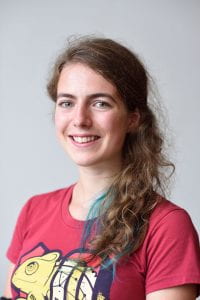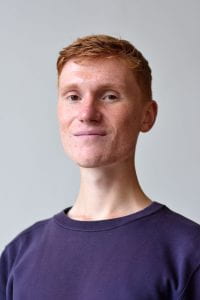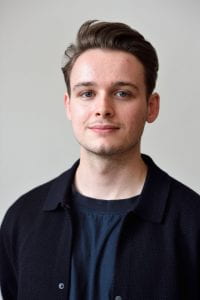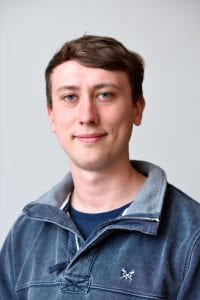 |
Alessio ZakariaI did my undergraduate degree in Computer Science at the University of Bristol where I focused on formal methods and programming language theory. I then pursued internships and work at a local Natural Language Processing startup wherein I became interested in numerical programming and computational statistics. I am currently interested in numerical methods and optimisation, with a side interest in applying formal methods to statistical programming. |
 |
Alexander ModellI completed my BSc in Mathematics at the University of Bristol, specialising in statistics and undertaking research internships at Cisco and Northrop Grumman. My research interests include networks, point processes, anomaly detection, and the intersections of these fields, particularly with applications to cyber security. |
 |
Andrea BecsekI have graduated from the University of Southampton with First-Class Honours in Mathematics. My research experience includes a placement at the British Antarctic Survey, where my work involved analysing spatiotemporal data related to the Sea Ice Concentration around the Antarctic region. I am passionate about applying statistical methodologies, such as spatiotemporal and multi-level modelling, to climate change, healthcare, and social science. |
 |
Daniel WilliamsI am originally from Birmingham and then the South West, in that order. My undergraduate degree was at the University of Exeter, where I studied a masters in mathematics; mostly focused on statistics, machine learning and applications to the climate and climate change. I am now in the second year of my PhD as part of the first Compass CDT cohort. My research interests are currently directed towards probability density estimation in interesting ways, such as on a sphere (or more generally, a manifold), in a truncated space (where our observations are artificially truncated), or a mix of both! |
 |
Dominic OwensI’m researching change point analysis for multivariate and high-dimensional time series. The new methods I develop need theoretical justification, and to be computationally efficient, which involves writing fast code. As a part of my thesis, I worked with CheckRisk to develop a change point method for a non-stationary factor model, which will be used for more accurate and realistic nowcasting of macroeconomic time series. |
 |
Doug CorbinAfter graduating from The University of Bristol with a bachelor’s degree in Mathematics with Statistics, I had a strong interest in data science and felt a particular draw towards research. Following my successful admission to the COMPASS Centre for Doctoral Training, I chose to specialise in non-parametric statistics and reinforcement learning, developing novel algorithms which address real world decision making problems. Alongside my research, I have been lucky enough to participate in several industry-partnered projects organised by the COMPASS management team. Such projects have provided me with valuable insights into data science practices within industry, while helping me to maintain a wide exposure to statistical disciplines outside of my specific research area. |
 |
Jake SpiteriBefore joining Compass I graduated from the University of Bristol with a First-Class Honours degree (MSci) in Mathematics and Statistics. Upon graduating I worked as a freelance business writer while studying modern methods in statistics and machine learning. I am interested in high-dimensional statistics, Bayesian statistics, and graph theory. I am particularly interested in the applications of statistical theory to real-world problems, such as the use of graph theory to understand and potentially detect changes in the community structure of brain networks. |
 |
Mauro Camara EscuderoMy PhD focuses on developing new representation learning methods such as Normalizing Flows, Variational Autoencoders and Generative Adversarial Networks to improve inference in simulator-based models with application in Population Genetics and Biology. I’m very happy to be supervised by Christophe Andrieu and Mark Beaumont. |
 |
Michael WhitehouseHaving graduated from Bristol with a BSc in Mathematics in Summer 2019, I joined the Compass Centre for Doctoral training as a PhD student. During my undergraduate studies I focused on Statistical modelling and Probability Theory. My current research interests revolve around inference approximations in Hidden Markov Models. |

